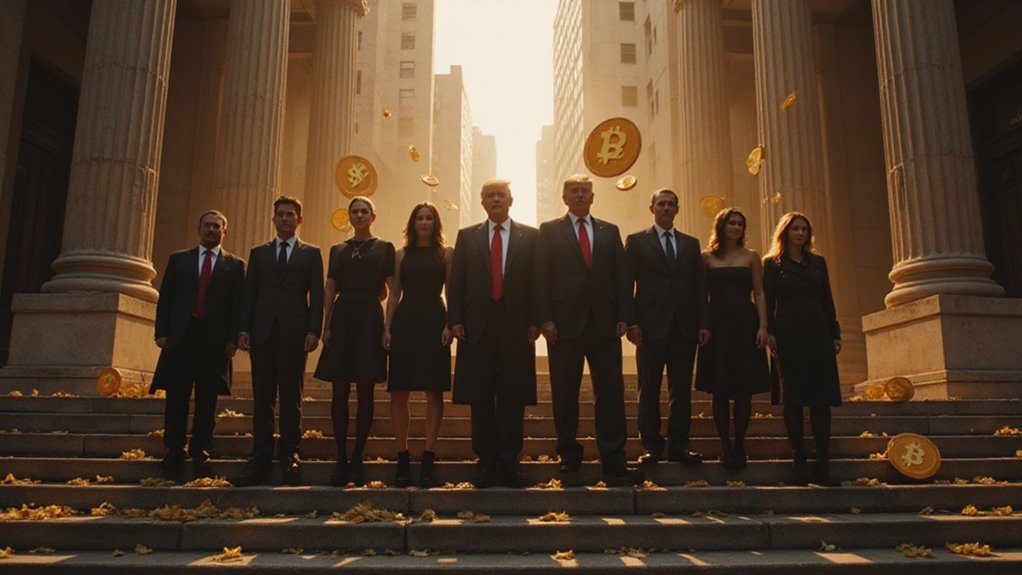The regulatory tango between the SEC and cryptocurrency exchange-traded funds has taken a particularly intricate turn, as the commission intensifies its scrutiny of proposed ETFs that would offer staking rewards—a feature that promises to transform these investment vehicles from mere tracking instruments into yield-generating entities.
REX Financial and Osprey Funds have ventured into this regulatory minefield with their Ethereum and Solana ETF proposals, only to discover that initial regulatory nods can quickly transform into pointed questions about federal securities law compliance.
The SEC’s primary concern centers on whether these staking-enabled funds cross the definitional threshold of investment companies under the Investment Company Act—a classification that would trigger substantially more stringent regulatory requirements.
The structural gymnastics employed by these funds reveal much about the current regulatory landscape.
By incorporating as C-corporations, they attempt to sidestep certain regulatory processes, though this maneuver has clearly failed to alleviate SEC concerns.
The commission’s questioning suggests a deeper skepticism about whether these vehicles can maintain their intended regulatory status while simultaneously offering the passive income streams that make them attractive to investors.
For investors, the implications extend beyond regulatory theater.
Staking rewards could fundamentally alter the value proposition of crypto ETFs, transforming them from simple exposure vehicles into income-generating assets.
This evolution arrives precisely as the SEC appears to be shifting from its historically enforcement-heavy approach toward providing clearer regulatory guidance—a shift embodied by its dedicated Crypto Task Force, which aims to release thorough regulatory frameworks.
Industry observers maintain cautious optimism, anticipating approvals for both spot and staking ETFs by 2025, despite current headwinds.
The regulatory uncertainty creates a peculiar investment environment where potential benefits must be weighed against the very real possibility that regulatory compliance issues could derail these innovative structures entirely.
The broader market implications remain substantial.
Should the SEC provide the regulatory clarity that industry participants desperately seek, crypto ETFs with staking capabilities could attract substantially more institutional and retail investment, potentially boosting overall market confidence. Bloomberg reported these developments on June 2, 2025, highlighting the timeline of regulatory scrutiny.
However, until the commission resolves its concerns about investment company status and structural compliance, investors face the familiar cryptocurrency conundrum of managing between innovation and regulatory risk. Coinbase’s recent favorable court ruling against the SEC demonstrates how successful legal challenges can reinforce operational legitimacy in the evolving regulatory landscape.









